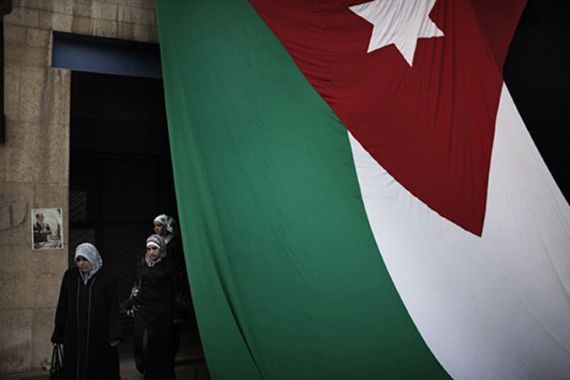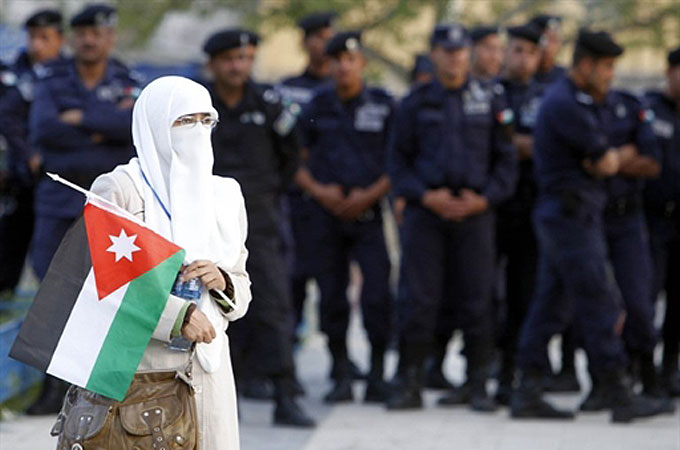Jordanian man sets himself on fire
Man is in critical condition with third-degree burns after burning himself outside prime minister’s office in Amman.

 |
| A woman with Jordanian flag walks past a line of police during a demonstration in the capital Amman on April 1 [AFP] |
A Jordanian man is in a critical condition in hospital after setting himself on fire in front of the prime minister’s office in Amman, the capital.
The incident comes after weeks of protests calling for reform, usually after Friday prayers, and violent clashes last month between pro- and anti- government demonstrations.
Mohammed Abdul-Karim was in critical condition with third-degree burns to his face and much of his body, said a doctor at Bashir Hospital on Thursday.
The doctor who gave details of Abdul-Karim’s condition spoke on condition of anonymity because they were not allowed to make press statements.
It was a similar act of self-immolation by a poor vegetable vendor in Tunisia in December that ignited the wave of protest which brought down autocratic rulers in Tunisia and Egypt and is threatening others across the Arab world.
The protests calling for political reform in Jordan have generally been smaller and more peaceful than in other Arab nations.
Charged for violence
But a day of protest on March 25 turned violent as crowds of government supporters and opponents clashed. One man died and 160 others were wounded.
On Thursday, prosecutors charged 80 people with resisting police intervening to break up those clashes. They will stand trial in Jordan’s Criminal Court, according to a judicial official.
He said they included pro-and anti-government activists but declined to give a breakdown. No trial date has been set. If convicted, they face up to five years in prison.
Marouf al-Bakhit, the prime minister, blamed opposition Islamists for March 25 clashes.
“What happened today is definitely the start of chaos and it is unacceptable and I warn of the consequences,” Bakhit told Jordanian television after the violence.
Meanwhile, Jordan’s King Abdullah II has called for national unity after the violence.
“The most important thing now is our national unity, which must not be touched,” the king told tribal leaders last month in the southern town of Petra, a major archaeological and tourist site.
The Islamist opposition and other groups have called for the ouster of the prime minister and have been urging sweeping political reforms, including an amended electoral law, leading to a parliamentary government and elected premier.
However, the Parliament has rejected calls to limit the king’s powers to pave the way for a constitutional monarchy.